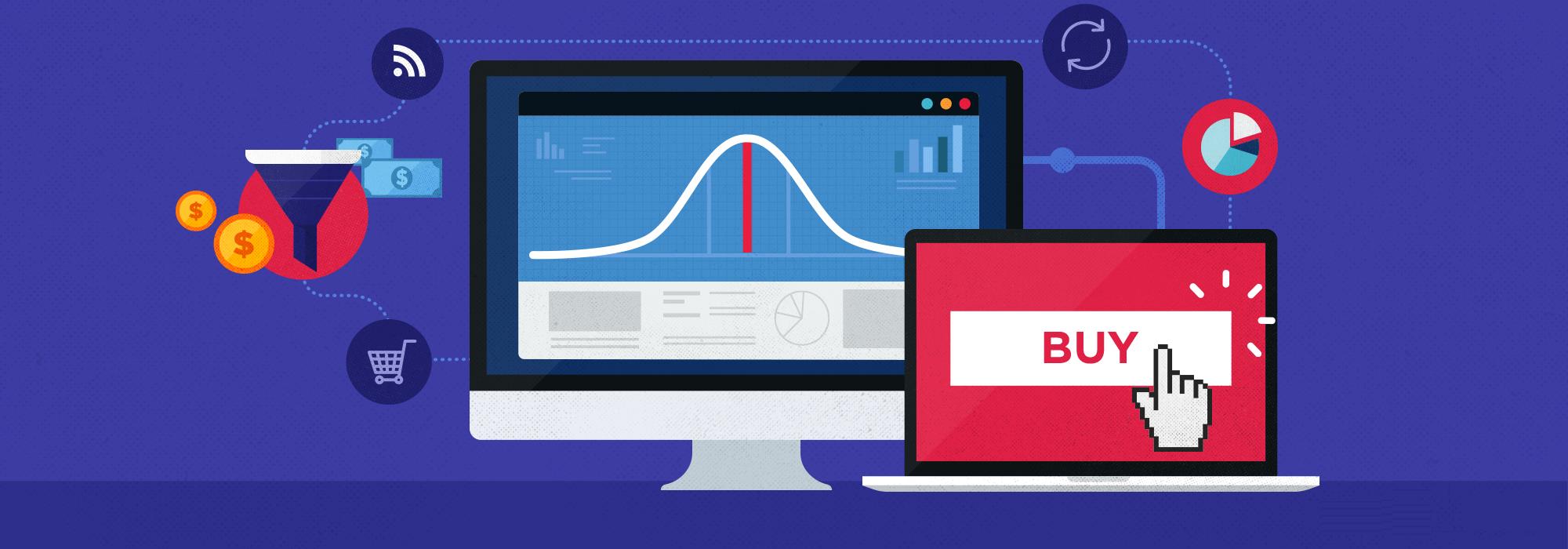7 Ways Big Data will increase Conversion Rate on your Site

But big data can only prove to be valuable once you realize the potential of ‘big-data driven marketing‘. This specific form of marketing can work wonders for your business. If you learn how to tackle big-data effectively, it can show instant results and improve overall customer engagement. E-commerce is a very dynamic way of selling online and you can achieve even more than your expected profits, if you learn to increase conversion rate optimization. This is when big data insights and analysis will come to your rescue and help to increase the conversion rate on your website. Here are some benefits of using big data, that can help you to reach your website conversion goals:
1. Helps create a Data-Driven Marketing Strategy
One of the basic ways in which big data can supplement your marketing strategy, is by converting it into a data-driven one. According to a research by Teradata, many enterprises are now focusing on big data to create more focused marketing strategies that generate increased revenue, margins and ultimately a lot more profits.
Big data insights are becoming increasingly valuable for businesses, because data driven marketing strategies are much more effective in reaching potential customers, hence increasing conversion rate on the website.
2- Allows you to understand your customer
E-commerce consumers are becoming increasingly aware and unless you treat them like royalty, it is difficult to optimize your conversion rates. According to a research, if you use big-data analysis to its full potential, you can increase your sales by 60%. This is why it is important to use big data and understand your customer so that you can have a customized one-on-one conversation with them. It not only reassures the customer that they are being taken seriously, but will also help you design your sales pitch according to the interests of the buyer. You can suggest offers and services according to the requirement of the consumer. So, big data is an accurate way to understand, attract, nurture leads and guide your customers along their e-shopping journey.
3- Helps evaluate your product
Big data can inform you about how well your product is being perceived in the real world. If you have good or bad reviews on social media, you can access them and learn a lot about your product. Insights by customers can help you re-develop your products, so that they evolve constantly. If you are selling a top-notch product, people are automatically going to be driven towards your website, resulting in a higher conversion rate.
4- Keeps your data up-to-date
Big data tools such as CRM programs have the ability to keep your data safe and organized at all times. You can clearly identify any internal security threats and fix them immediately. A sales pipeline template also shows potential leads and gives you a clear idea of sales forecast, enabling you to design future marketing strategies accordingly.
5- Enables better pricing decisions
One of the most important factors that can affect the conversion rates of your website, is market competitive pricing of products. If your products are better in terms of pricing, as compared to other e-commerce websites, consumers will definitely buy from you. But the process of checking each competitor’s website for prices, is exhausting. This is when big data can be of great help.
Most online shoppers browse through a lot of similar online stores and use price comparison engines to help them decide which item to buy. This is why, if you properly analyze each customer’s big data, you can automatically get an idea of market prices and the season’s demanded products.
6- Suggests relevant product recommendations
As discussed above, it is extremely important for the customer to have a personalized shopping experience on your website. If a customer gets relevant product recommendations, that are based on their interests, there is a lot more chance for the lead to convert into a successful sale.
Big data uses the consumers online activity to predict the user’s next action. By understanding the buyer’s profile, big data offers relevant suggestions to the customer, that will ensure a higher conversion rate for the website.
7- Increases customer responsiveness
A research by the Aberdeen group suggests that responsive websites have an increased visitor-to-buyer conversion rate of up to 11% as compared to non-responsive websites. Big data can help you maintain a highly responsive website by using nonrelational databases that give accurate prediction of future customer activity.
This is why big data plays a vital role in achieving increased customer responsiveness and gaining better customer insights. According to a Forrester study, 44% of marketing analysts are using big data to improve responsiveness. Apart from this, more than 36% of them are using data mining to achieve better customer insights that can help them plan more relationship-driven strategies.
Conclusion:
Apart from the above-mentioned benefits of big data, it has also revolutionized the way SEO affects your business. Big data has made it very easy for search engines to filter content and deliver relevant results to the user. Hence, if businesses incorporate SEO within their online content correctly, it will generate a lot of traffic on their website.
Big data is a gold mine of information that can change the fate of your online business, if used intelligently. But ironically, less than 0.5% of the data is accurately analyzed and converted into actions. Once online businesses realize its true potential, big data will become an irreplaceable part of their strategies.
The post is by Audrey Throne, a mother of a 2-year old and a professional blogger by choice. Throne is passionate about health, technology and management and blogs frequently on these topics. Find her on Twitter: @audrey_throne.

























